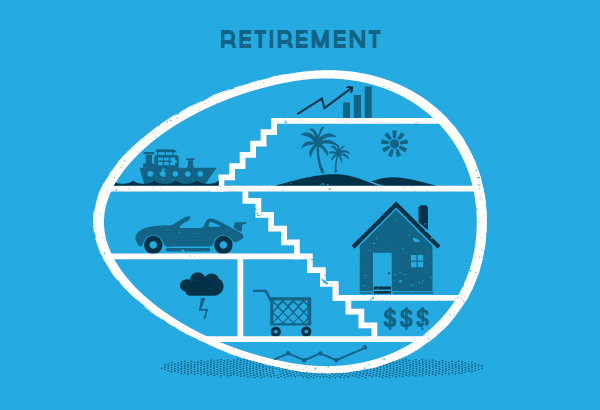Selling Your House for Retirement: 4 Questions You Should Ask

After the kids move out, you may start thinking about downsizing to a place with fewer bedrooms. All of that extra space in your home represents equity that could be converted into cash for your retirement. But before you sell your home, ask yourself these four important questions.
1. Why Do You Want to Sell Your House?
Although it’s important to look at the financial numbers when weighing your options, the truth is that the decision to sell is about more than just the money. It’s also about making your life easier.
According to a recent study by Merrill Lynch, 64% of seniors who downsized in retirement did so to lower their monthly housing costs, and 44% felt that a larger home is too much work.
If you do decide to sell, you’re more likely to buy the home you really want, because you have certain advantages over younger buyers. You’ll have more cash to offer, school districts aren’t an issue, and neither is proximity to the workplace. That makes it more likely you can purchase just the property you’re looking for.
2. Should You Buy or Rent in Retirement?
Your first instinct might be to go shopping for a smaller home or condo to buy. But in some cases, renting actually makes more sense.
If you’re tired of the constant upkeep and surprise repair costs that come with owning a home, then renting could be the better choice. Besides making things easier, it also keeps your monthly expenses predictable.
Renting also gives you the opportunity to change your mind. After moving to a smaller home, you may discover that you miss certain amenities, or that you actually need more space than you thought.
If you’re moving to another part of the country, you may want the opportunity to get a better feeling for the area before you buy, and renting makes that possible.
Renting may also be a good option if you’re moving closer to other family members. If there’s a chance that they might move in the next few years, renting gives you more flexibility.
3. Do You Want to Pile Up Extra Cash for Retirement?
Many retirees who downsize soon discover new expenses that they had never considered. Moving to a new climate, for example, may require a complete change in clothing and furniture.
Although downsizing from a large home to a townhouse or condo can result in significant cost savings, you may also have additional HOA fees and surprise maintenance costs.
Your lifestyle and health needs may change in retirement, as well. It’s to your advantage to set aside some of the proceeds from the sale of your home against future expenses.
4. Can You Afford to Fix Up Your Old House?
Generally, the longer you live in the same house, the more time and money it will cost to get it ready to show. After you’ve lived in a house for 20 or 30 years (or longer), preparing it to sell can become an expensive undertaking.
If you don’t have the ready funds or the inclination to take on a home renovation project, consider contacting a real estate investor who will buy your home as-is for cash. That will save you the trouble and expense of fixing up your old home, listing the property, and paying a real estate agent to sell it.
Downsizing Can Save Your Retirement
Downsizing your home means you could pay off the mortgage, travel, or just pay living expenses. It’s up to you.
Most importantly, selling your house and downsizing can bring you peace of mind. You can look forward to retirement knowing that you have a large financial cushion for whatever life brings you next.



